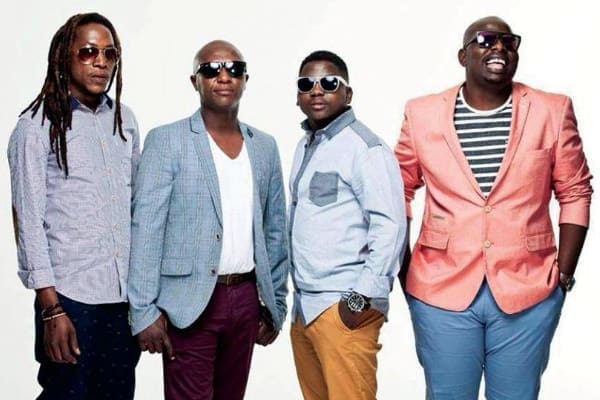
Introduction
Uhuru was a prominent South African music group known for their innovative fusion of Afro-house, kwaito, and electronic dance music. Formed in 2012, the group gained international acclaim for their collaborations with renowned artists and their chart-topping hits. Although the group disbanded in 2016, their influence on the South African music scene remains significant.
Formation and Members
Uhuru was established in 2012 in Soshanguve, Pretoria, South Africa. The founding members were
- Themba Sekowe (DJ Maphorisa) – Producer and DJ
- Nqobile Mahlanu (Mapiano) – Pianist
- Sihle Dlalisisa (DJ Clap) – DJ
- Xelimpilo Simelane (Xeli) – Vocalist
The group was signed to Kalawa Jazmee Records, a leading South African record label known for promoting house and kwaito music. Their diverse backgrounds and musical talents contributed to their unique sound, blending traditional African rhythms with contemporary electronic music.
Musical Style and Influences
Uhuru’s music was characterized by a dynamic blend of Afro-house, kwaito, and electronic dance elements. Their sound was influenced by South African musical traditions, contemporary house music, and global dance trends. The group’s ability to seamlessly integrate various genres allowed them to create music that resonated with a broad audience, both locally and internationally.
Career Highlights and Achievements
Chart-Topping Singles
Uhuru gained widespread recognition with their hit single “Y-tjukutja” in 2013. The track became a national anthem, topping various radio charts and earning the title of Song of the Year in South Africa. The song’s success was bolstered by its infectious beat and catchy lyrics, which resonated with a diverse audience.
Another significant achievement was their collaboration on Mafikizolo’s “Khona,” which featured additional vocals from Uhuru. Released in 2013, the song topped the Afribiz Top 100 chart and received accolades such as Record of the Year at the 20th South African Music Awards and Song of the Year at the 2014 MTV Africa Music Awards.
Albums and Other Notable Tracks
Uhuru’s discography includes several successful albums and singles:
- Albums:
- Not Yet (2012)
- Our Father (2013)
- Symbiose (2014)
- Safari (2014)
- Free Prophecy, Vol. 1 (2016)
- Selected Singles:
- “Pata Pata” (2012)
- “Work” (2012)
- “Pepe” (2012)
- “Y-tjukutja” (2013)
- “Raindrops” (2014)
- “Duze” (2015)
- “Shoota Babylone” (2015)
- “Circles” (2015)
These tracks showcase the group’s versatility and ability to produce music that appeals to a wide range of listeners.
Collaborations and International Recognition
Uhuru’s collaborations with various artists further cemented their status in the music industry:
- “Khona” – Mafikizolo featuring Uhuru
- “Speaker” – Professor featuring Oskido and Uhuru
- “Move” – Becca featuring Uhuru
- “Nakupenda” – Mafikizolo featuring Uhuru
- “Komolop Cholop” – MC Galaxy featuring Uhuru
- “The Sound” – Davido featuring Uhuru
- “The Banger” – Runtown featuring Uhuru
These collaborations not only expanded Uhuru’s reach across the African continent but also introduced their music to international audiences.
Awards and Recognition
Throughout their career, Uhuru received several accolades:
- 2013: Song of the Year for “Y-tjukutja”
- 2014: Song of the Year for “Khona” at the MTV Africa Music Awards
- 2016: Nominated for Best Electronic Act at the Unsigned Music Awards (UMA)
These awards highlight the group’s impact on the music industry and their ability to produce music that resonates with a wide audience.
Challenges and Disbandment
Despite their success, Uhuru faced internal challenges that led to changes in their lineup and management. By 2016, the group underwent significant changes, incorporating new members and releasing new music under different management. This period marked the end of their initial run as a collective, and they eventually disbanded.
Legacy
Uhuru’s contribution to the South African music scene is undeniable. Their innovative fusion of genres and ability to produce chart-topping hits have left an indelible mark on the industry. While the group is no longer active, their music continues to inspire and influence artists and fans alike.





